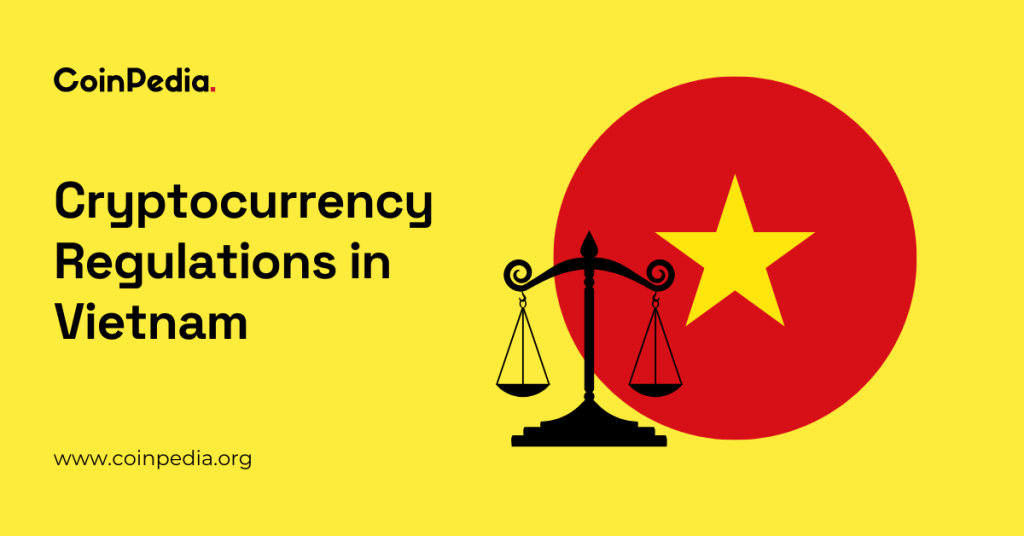Crypto Regulation In Nigeria In 2024

The post Crypto Regulation In Nigeria In 2024 appeared first on Coinpedia Fintech News
Since Bitcoin’s advent in 2009, Cryptocurrency has noticed an interesting shift at every instance. Governments worldwide have understood the importance of digital assets and wish to formulate rules, policies, and regulations dedicated to the blockchain and crypto space. Africa’s most populous country, Nigeria, is not behind! The Country’s tech-savvy and pro-blockchain youth is eager to adopt crypto, hence, the country is all into outlining the framework for governing virtual assets.
In this module by Coinpedia, we will discuss the crypto regulations in Nigeria in 2024! Let us dive in.
Is Bitcoin Legal In Nigeria?
Cryptocurrencies are not legal tender in Nigeria as they are not recognized by the Central Bank of Nigeria (CBN). The CBN completely banned commercial banks from engaging in any crypto transactions in 2021. The financial system and banking sector of Nigeria is not linked to crypto trading. However, they acknowledge the potential of digital assets and believe that they could improve financial inclusion here. Crypto is not illegal in Nigeria! There are currently no laws or legislation criminalizing the use of crypto. Cryptocurrencies are widely traded on crypto exchanges across Nigeria.
Crypto Regulations In Nigeria
CBN’s ban on crypto in 2021 and the growing popularity of digital assets in the country led the Securities and Exchange Commission of Nigeria to form a framework on crypto regulation in Nigeria. In 2022, The SEC published a comprehensive 54-page long document titled “New Rules on Issuance, Offering Platforms and Custody of Digital Assets” on its website.
- The document offers guidelines for banking and financial institutions of the country on how to interact with digital assets.
- It clarifies and defines digital assets in Nigeria and iterates that all digital asset token offerings, ICOs and blockchain-based offerings within Nigeria or by Nigeria issuers will be regulated by the SEC.
- All crypto exchanges providing services in Nigeria are required to secure a permit, which gives the SEC all the access to their records.
- The DAXs need to obtain a virtual asset service provider (VASP) license from the SEC by complying with the requirements of application processing, registration fee and other applicable fees.
- Crypto exchanges need to provide evidence of a minimum paid-up capital of 500 million Nairas and a current fidelity bond covering at least 25% of the company’s minimum paid-up capital.
- They need to obtain a license from the SEC and register with the Corporate Affairs Commission (CAC), collect the bank verification number (BVN) of crypto company owners, verify the identities of customers, comply with KYC and AML measures, and submit a white paper to the SEC for approval if issuing tokens!
- Exchanges also need to have a physical presence in Nigeria to ensure that they operate within the regulatory purview of Nigerian authorities.
- A licensed DAX needs to abide by SEC regulations and submit an undertaking to ensure the availability of records, ensure personnel and resources availability, security measures, and risk management, and appoint a chief information security officer in order to mitigate cyber risks.
- In 2023, Nigeria’s Central bank lifted a ban on transacting crypto, realizing the importance of crypto.
What’s new in crypto regulations in Nigeria in 2024?
The Binance controversy led to the government turning up the heat on exchanges operating in the country. Binance was accused of terror financing leading to its partial exit from the Nigerian crypto market. On March 7, 2024, the SEC will be integrating revised guidelines for licensing and registering virtual asset service providers operating in the region.
- These guidelines include measures against money laundering and combating financing of terrorism.
- The recent wake of troubles for the local fiat currency, Naira, made the government resort to its old ways of restricting investor access to crypto services in its pursuit of a scapegoat for its rapid decline.
- On March 7, the SEC updated its guidelines for crypto service providers post the government’s block to access several crypto platforms like Binance by the locals.
- The new SEC guidelines would ensure “criminals are not registered as operators” in the capital market.
Taxation
Crypto is taxable in Nigeria! A specific bill was signed into law in May 2023 by then-president Buhari to clear up the tax status of digital assets in the evolving crypto space. The new law imposes a 10% levy on the disposal of all digital assets, including cryptocurrency. The tax applies to both individuals and businesses or any type of entities resident in Nigeria. In May 2023, 10% taxation on gains from the disposal of crypto was introduced.
New York-based blockchain research firm, Chainalysis, published that the volume of crypto transactions in Nigeria grew 9% year-over-year to $56.7 billion between July 2022 and June 2023. The growth showcases that Nigeria has a market full of crypto enthusiasts and thus it needs to be regulated well.



